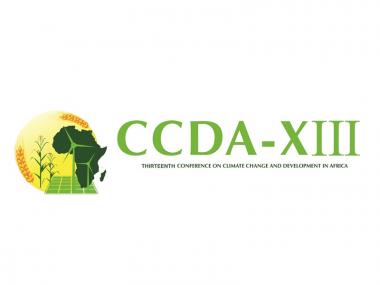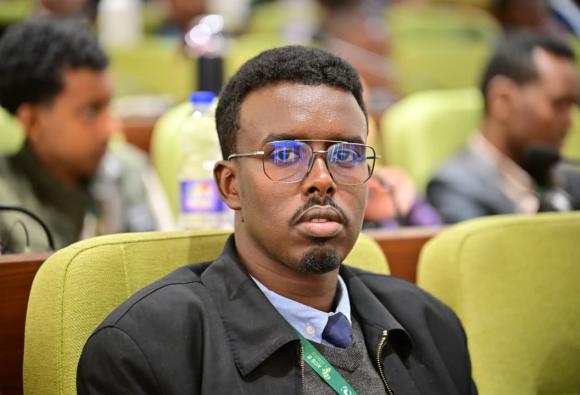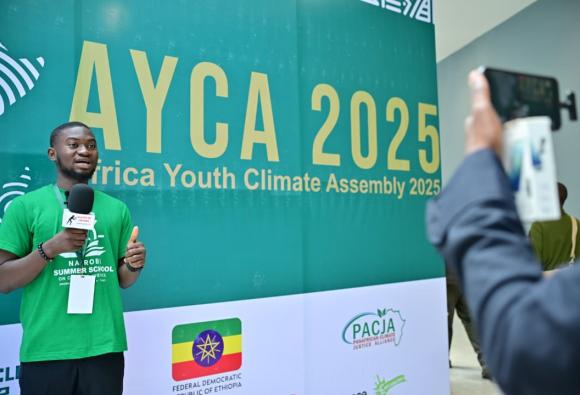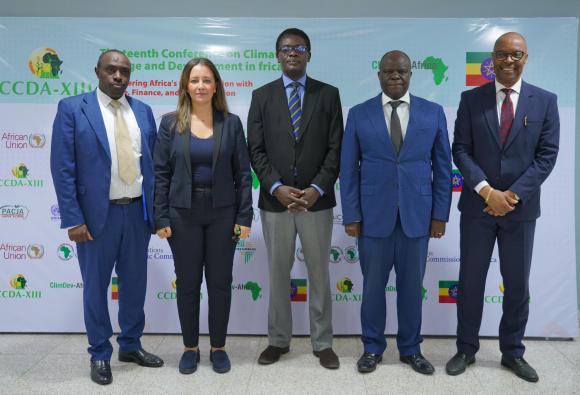CCDA-XIII OUTCOME DOCUMENT - KEY MESSAGES AND RECOMMENDATIONS TO ACS2
Introduction
The 13th Conference on Climate Change and Development in Africa (CCDA-XIII) will serve as a key technical gathering that provides a key foundation for the Second Africa Climate Summit (ACS2). It is scheduled to take place from September 5 to 7, 2025, in Addis Ababa. The conference will bring together a diverse group of stakeholders, governments, academia and research communities, civil society, Indigenous Peoples, youth, and private sector actors, to promote African-led, evidence-based climate action. The focus will be on strengthening resilience, fostering green growth, and scaling up climate finance, all in support of implementing the AU Climate Change and Resilient Development Strategy and Action Plan (2022–2032).
CCDA-XIII, with its theme of "Empowering Africa's Climate Action with Science, Finance, and Just Transition," aligns well with ACS2's theme of "Accelerating Global Climate Solutions: Financing for Africa's Resilient and Green Development." CCDA-XIII will adopt ACS2's three-day thematic format, discussing nature- and technology-driven solutions, scaling adaptation and resilience, and transforming climate finance from aid to investment. Throughout, CCDA-XIII will provide a vital technical foundation to support Africa's unified voice at ACS2 and the Conference of the Parties (COP30) in Belém, aiming to promote policy coherence, evidence-based advice, and continent-wide priorities. It will solidify the continent's shared vision for climate justice, a green economy, and financial reform by connecting science, policy, and investment; amplifying grassroots voices and bottom-up governance; and scaling African solutions as global models for prosperity and resilience.
Objectives
The overall goal of the CCDA-XIII is to unify and present Africa's common, evidence-based, and investment-worthy climate agenda that boosts resilience, promotes green growth, and improves institutional capacity for effective participation in global climate negotiations and the implementation of continental priorities that directly inform ACS2 and COP30. This aligns with the AU Climate Change and Resilient Development Strategy and Action Plan (2022-2032). Specifically, the conference will aim to:
- Strengthen climate governance and institutional readiness to implement integrated climate policies across key sectors, improve transparency, and increase Africa’s negotiation leverage in global climate discussions.
- Harness nature-based and technology-driven climate solutions, guided by scientific understanding of current and future climate risks, to inform adaptation and mitigation planning, improve early warning systems, enhance climate information services, and promote scalable solutions for greater resilience and green jobs.
- Advance gender-responsive, locally led adaptation initiatives, while developing Africa-specific methods for accessing and tracking the Loss and Damage Fund—including for non-economic losses—while considering risks related to mobility, peace, and security.
- Transition climate finance from aid to strategic investment by catalyzing innovative financial tools—such as debt-for-climate swaps, blended finance, direct access modalities, and green investments—to attract both public and private capital.
- Promote equitable and inclusive just transitions by focusing on access to electricity, inclusive value chains for transition minerals, and creating decent green jobs that ensure fair labor conditions, gender equality, and community benefit-sharing.
- Increase awareness and understanding of climate risks across the continent, targeting policymakers, African leaders, and institutions to support informed decision-making and build public and political support for climate action.
Thematic Pillars
- Pillar 1: Climate policy, governance, and institutional readiness
- Pillar 2: Nature, technology, and climate intelligence
- Pillar 3: Climate adaptation, resilience, loss and damage
- Pillar 4: Climate finance
- Pillar 5: Equitable just transition to facilitate Africa's development
Expected Outcomes
CCDA-XIII findings pave the way for a united, evidence-based, and solution-focused African voice—not only at ACS2 and COP30, but also at the G20, UNGA, and elsewhere. Therefore, CCDA-XIII is expected to achieve the following outcomes:
- A technical position paper consolidating recommendations across the five pillars for submission to the African Leaders at the Addis Ababa Declaration.
- Guidance notes and policy briefs on GST-1 integration, carbon market access, and the Loss and Damage.
- Press releases on investment-ready and evidence-based climate action agendas that enhance resilience, stimulate green growth, and strengthen institutional preparedness for effective global climate negotiations and continental priority implementation.
Participants
CCDA-XIII participants will be a representative mix of stakeholders, including:
- Governments and negotiators of African countries;
- Regional economic communities (RECs), Regional Climate Centres;
- UN agencies, multilateral and bilateral partners;
- Private investors, commercial banks, and climate-focused funds;
- Think tanks, academia, and research and policy institutions;
- Civil society, private sectors, youth and women organizations, Indigenous networks, and local innovators as well as actors from national and subnational levels.









